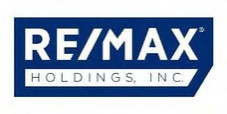Exhibit 19.1

Insider Trading Policy
RE/MAX Holdings, Inc. has adopted this Insider Trading Policy to provide guidelines to all personnel, including employees, directors and officers of RE/MAX Holdings, Inc. and its subsidiaries (collectively, the “Company”) with respect to transactions involving the Company’s securities and the handling of confidential information about the Company and other companies with which the Company does business. It is the policy of the Company to comply with all insider trading laws and regulations.
Employees, officers and directors of the Company may create, use or have access to material information that is not generally available to the investing public. Such information is referred to in this Insider Trading Policy as “material non-public information” and is more fully explained in Section 5. Each individual has important ethical and legal obligations to maintain the confidentiality of such information and to not engage in any transactions in the Company’s securities while in possession of material non- public information. Individuals and the Company may be subject to severe civil and criminal penalties as a result of unauthorized disclosure of, or trading in the Company’s securities while in possession of material non-public information.
Both the Securities and Exchange Commission (“SEC”) and the New York Stock Exchange (“NYSE”) are very effective at detecting and pursuing insider trading cases. The SEC has successfully brought cases against employees trading through foreign accounts, trading by family members and friends, and trading involving only a small number of shares or dollar amounts.
Therefore, it is important that you understand the breadth of activities that constitute illegal insider trading. This Insider Trading Policy sets out the Company’s policy in the area of insider trading. It’s here to protect both you and the Company, so read it carefully and comply fully.
The Company has designated a Chief Compliance Officer who is responsible for administering this policy. The Chief Compliance Officer may delegate duties and responsibilities under this policy to other Company employees.
This policy applies to all directors, officers and employees of the Company and to such consultants or contractors of the Company designated by the Chief Compliance Officer (collectively referred to as “Company Personnel”). As discussed in Sections 2 and 3, certain provisions of this policy apply to family members and other people related to Company Personnel. Further, members of the Board of Directors and certain officers are subject to additional restrictions and requirements as discussed in Sections 9 and 10.
For purposes of this policy, the Company’s securities include (i) the Company’s common stock,
(ii) any other securities the Company may issue from time to time, such as preferred stock, warrants and convertible debentures, and (iii) derivative securities relating to the Company’s stock, whether or not issued by the Company, such as options. For purposes of this Insider Trading Policy, “trading” and “transactions” include, among other things, (a) purchases, sales or other transfers of Company securities (whether or not on an exchange or in a public market), including securities obtained through any equity compensation program of the Company, (b) purchases, sales or other transfers of any derivative product related to the Company’s securities (whether or not on an exchange or in a public market) and (c) using Company securities to secure a loan.
1